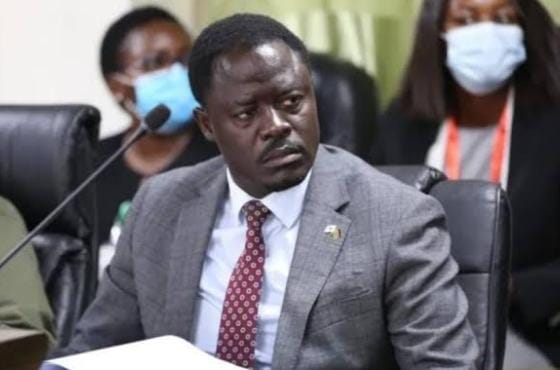NAIROBI Kenya January 9 -The Justice and Legal Affairs Committee (JLAC) has rejected amendments proposed by Homa Bay MP Peter Kaluma to allow appointment of persons convicted of corruption and economic crime to public office.
Instead, the Committee now wants the ban from public office extended to elective offices and the period enhanced from 10 years to a permanent prohibition.
The Committee has also advised that any legal amendments to any law should advance public interest by strengthening existing laws and institutions as opposed to weakening them.
MP Kaluma’s Bill seeks to repeal Section 64 of the Anti-Corruption and Economic Crimes Act, 2003 (ACECA) which disqualifies persons convicted of corruption and economic crimes from being appointed or elected to public office for a period of 10 years from the date of conviction.
However, section 64(2) of the Act exempts elective offices from the ban, leaving its direct application to public appointments.
According to the Homabay Legislator, there is already enough punishment for graft convicts under Section 48 of the Act and therefore, maintaining the additional punishment of prohibiting a person from public office is unfair.
JLAC has however said the Bill is inconsistent with Article 75(3) of the Constitution and will weaken the fight against corruption.
The Committee recommends that instead of repealing section 64 of the Act in the manner proposed by MP Kaluma, the section be further strengthened to align it to Chapter Six of the Constitution.
The JLAC’s proposals include enhancing the period of the graft convict’s ban from public office from the current 10 years to a permanent ban.
They also propose the removal of the exemption of elective offices from the ban to have the provision apply to all persons seeking public office whether through election or appointment.
The Ethics and Anti-Corruption Commission (EACC) and other key stakeholders opposed the Bill, terming it a clawback on constitutional imperatives on governance which will weaken an already fragile framework for implementation of Chapter Six of the Constitution.
Appearing before the Committee, EACC maintained that corruption and economic crimes are very serious offences against the public whose effects are wide ranging and impact on the society negatively, and as such the punishment must be proportionate to the damage occasioned to society.
In another proposal that experts warn will further weaken anti-corruption efforts, Mbeere North MP Geoffrey Ruku’s Bill seeks to repeal section 45(2)(b) and (c) of the ACECA.
The Bill, if approved, will decriminalize corruption offences arising from mismanagement of public revenue and procurement malpractices.
The Ruku Bill proposes substitution of the current criminal sanctions with administrative action for offences such as giving tenders to oneself or associates, exaggerated costs, procuring unqualified suppliers, and skewed specifications, among others.
The EACC has however warned that since public procurement is the bedrock of corruption, such a move would open floodgates of corruption scandals and create legal avenues for the perpetrators to go scot-free.
Want to send us a story? Contact Shahidi News Tel: +254115512797 (Mobile & WhatsApp)


